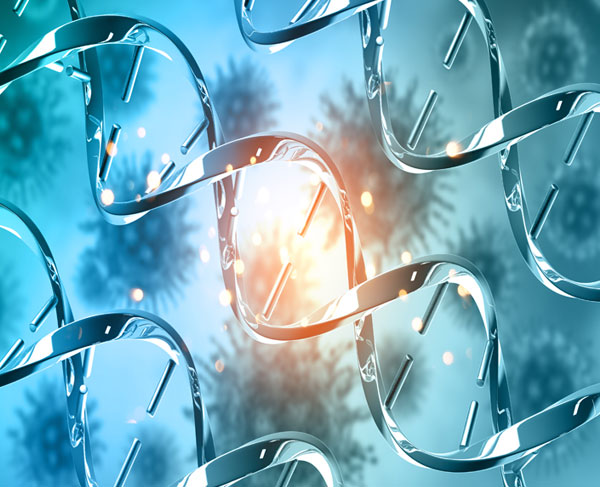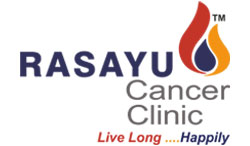Cancer Types
- Bladder Cancer
- Bone Cancer
- Breast Cancer
- Cervical Cancer
- Colorectal Cancer
- Endometrial Cancer
- Head & Neck Cancer
- Kidney Cancer
- Laryngeal Cancer
- Leukaemia
- Liver Cancer
- Lung Cancer
- Multiple Myeloma
- Nasopharyngeal Cancer
- Non-Hodgkin's Lymphoma
- Oesophagus Cancer
- Oral Cancer
- Ovarian Cancer
- Pancreatic Cancer
- Prostate Cancer
- Skin Cancer
- Stomach Cancer
- Testicular Cancer
- Thyroid Cancer
Opening Hours
- Monday - Saturday 10:00 am - 7.00 pm

Skin Cancer
- The skin is unique in three ways. It is a living covering for the body to protect it from loss of water and injury from light, heat, chemicals and infections.
- It is important organ for body temperature.
- It is the only organ easily visible making it an accessible for diagnosis treatment and prevention.
- Skin cancer ranks 20th among the highest cancer prevalence and comprises 1.6% of the total cancer cases annually.
- Death rate of skin cancer is a meagre 0.64% and the 5-year survival rate is about 12.65% as per the study at Globocan 2018.
- The 5-year survival rates for melanoma skin cancer as per American cancer society varies in different context; if it is localized it goes up to 99%, if it has spread across the region, it is 65% and 25% if it has moved across other areas and organs.
- Out of which Basal cell and Squamous cell are most common type of cancers of the skin.
- Both are found mainly on the parts that are exposed to sun such as head and neck. Melanoma’s are not as common as the other two but can be far more serious.
- There are 3 main types of Skin Cancer :
– Basal Cell Carcinoma
– Squamous Cell Carcinoma
– Melanoma
Causes
- Exposure to UV Rays.
- Genetics.
- Atrophic Skin Lesions.
- Radiation Exposure.
- Chemical Carcinogenesis.
- Immunosuppression.
Carcinogenic agents with sufficient evidence in humans
- Polychlorinated biphenyls.
- Solar radiation.
- Ultraviolet-emitting tanning devices.
- Arsenic and inorganic -arsenic compounds.
- Azathioprine.
- Coal-tar distillation.
- Coal-tar pitch.
- Cyclosporine.
- Methoxsalen plus ultraviolet A.
- Mineral oils, untreated or mildly treated.
- Shale oils.
- Solar radiation.
- Soot.
- X-radiation, gamma – radiation.
Agents with limited evidence
- Creosotes.
- Human Immunodeficiency Virus Type 1.
- Human Papillomavirus types 5 and 8 (in patients with Epidermodysplasia Verruciformis).
- Hydrochlorothiazide Merkel Cell Polyomavirus (MCV).
- Nitrogen Mustard.
- Petroleum Refining, occupational exposures.
- Moles – People with many moles or unusual moles have a higher risk of developing skin cancer.
- Dysplastic nevi are large moles that have irregular color and shape.
- People with specific inherited genetic conditions, including xeroderma pigmentosum.
- Retinoblastoma, Li Fraumeni syndrome and certain hereditary breast and ovarian cancer syndromes.
Signs and Symptoms
- Basal Cell Carcinoma may appear as :
– A pearly or waxy bump.
– A flat, flesh colored or brown scar like lesion. - Squamous cell carcinoma may appear as :
– A firm red nodule.
– A flat lesion with scaly, crusted surface. - Melanoma may appear as :
– A large brownish spot.
– A mole that changes in color, size and that bleeds easily etc.
IV Investigations / Screening
- Physical Examination and History.
- Biopsy – A piece of tissue is removed from the skin site. A biopsy can determine if there is skin cancer and, if so, the type of skin cancer.
- PET scan / MRI / CT Scan – Scanning is done to examine the nearby lymph nodes for presence of cancer tissue or a procedure to remove a nearby lymph node and test it for signs of cancer (sentinel lymph node biopsy).
- Biomarker investigations.
Treatment
- To plan personalised treatment for each individual patient as every individual is different even if they have the same type of cancer.
- To improve health related quality of life (QOL) in all types and stages of cancer patients.
- To plan for partial or total regression of tumour depending on the nature of tumors.
- To increase overall survival (OS) of patients.
- To increase disease free survival (DFS) where complete resection of tumour is achieved.
- To provide a treatment option to patients who are refractory to conventional treatments like chemotherapy / radiotherapy / immunotherapy etc.
- To reduce the rate of growth of the tumor in recurrent and advanced staged cases.
- To increase progression free survival in advance cases.
- To reduce impact of symptoms related to progression of disease.
- To improve confidence of patients.
- To provide palliative support in end-of- life cancer cases.
- To add happiness and extension of life to cancer patients.
- To compliment other therapies like chemotherapy, radiotherapy in a synergistic way.
- To reduce severity or adverse effects of other conventional treatment. This reduces incidence and frequency of hospitalization.
- It is pertinent to note that Rasayu Cancer Clinic does not claim or blame anything while communicating any aspect to cancer patients.
- Rasayu Cancer Clinic focuses on Ayurveda fundamental based therapies.
- Rasayu Cancer Clinic believes in continuous improvement in service and science.
- Rasayu Cancer Clinic always advocates patient centric approach which leads to long and happy life of cancer patients.
- Every patient has a right to choose the therapy.
- Rasayu Cancer Clinic never imposes Rasayana therapy on patients but helps them to take the right decision, hence making patients/ relatives well aware about the disease and possible outcomes along with its risk benefit and cost benefit ratios.
- Rasayu Cancer Clinic is well connected with global updates in cancer care and therapies, through advisors and collaborations with national and international institutes.
Surgery
- Cryosurgery for skin cancer Surgery is the option with high cure rate. The aim is to remove the lesion completely.
- Cryosurgery is less invasive than the usual surgery. It is mostly used to treat actinic keratosis (a precancerous skin condition) and occasionally for small, newly developed skin cancers.
- Laser surgery for skin cancer – Lasers surgery is used for treating early cancers or potential cancers like actinic keratosis and other superficial skin cancers.
- An intense, focused beam of light is used for destroying skin cancer. It can help remove skin in layers as per the spread.
- The laser destruction causes a blistered wound which takes few weeks to heal.
Radiation
- Radiation is a good choice for patients who are unfit for surgery but it has long term side effects which affects the quality of life of patient.
- Know more about Radiotherapy side effects – Click Here
Chemotherapy
- (Topical Chemotherapy) Chemotherapy is useful for advanced skin cancers, but rarely used as the basic protocol.
- Chemotherapy drugs work by killing fast-growing cancer cells.
- Skin cancer chemotherapy is given as a topical ointment that is applied to the affected skin.
- At the end of treatment, patients may show redness and some crusting on their skin, which normally heals in two to three weeks.
- Like cryosurgery, topical chemotherapy it is used to treat actinic keratosis and superficial skin cancers.
- Cryosurgery is confined to smaller areas, but topical chemotherapy can cover large sections of skin, such as a patient’s entire face.
- Additional side effects of chemotherapy in skin cancer – Click Here
- Side effects of Chemotherapy – Click Here
- Adverse drug reactions (ADRs) of Chemotherapy – Click Here
Immunotherapy
- It is the best option for skin cancer as chemotherapy has numerous side effects which adversely affect the quality of life.
- The efficacy of the treatment is still unclear, as per the National Library of Medicine, as there are no biomarkers available as yet.
- Cost of this treatment is high and does not seem to fit into cost benefit ratio.
- Side Effects – Click Here
- Risk and Benefits of Immunotherapy – Click Here
- Side Effects of Immunotherapy – Click Here
Rasayu Cancer Clinic Rasayan Treatment Protocol – To know more please click here
- Who voluntarily opted for this treatment as their first choice.
- Who are disenchanted with the past treatments.
- Who do not see any other options of treatments,
- Who are looking for personalized treatment plan,
- Who desire a convenient home-based oral therapy which is easy to consume.
- Who are susceptible to acquire hospital borne infections/ complications, hence not willing to be hospitalised.
- Who are looking for favourable risk benefit ratio.
- Who desire to improve Quality Of Life benchmarks based on global standards and monitored regularly.
- Who are involved in decision making for choice of treatment.
- Who are willing to be involved in monitoring the efficacy of Rasayana Therapy.
- Who believe in the transparency of the process by conducting regular investigations by biochemical parameters/ hi tech imaging techniques like PET scan etc.
- Who are equally sensitive to the patient, the care givers and the family.
- Which can be taken with other treatments including Chemotherapy / Radiotherapy.
Disclaimer : This Website contains certain links such as You Tube links, research paper links / website links / audio visuals / internet information already available in public domain. The information contained in the audio visuals is meant for use by qualified Medical Professionals. The content of the links etc has been made available for informational and educational purposes only. Rasayu Cancer Clinic and its associates do not make any warranties with respect to the accuracy, applicability, fitness, or the completeness of the content of such links etc. The information contained in such links represents the views and opinions of the original creator of such links and are not views endorsed by the Rasayu fraternity.


